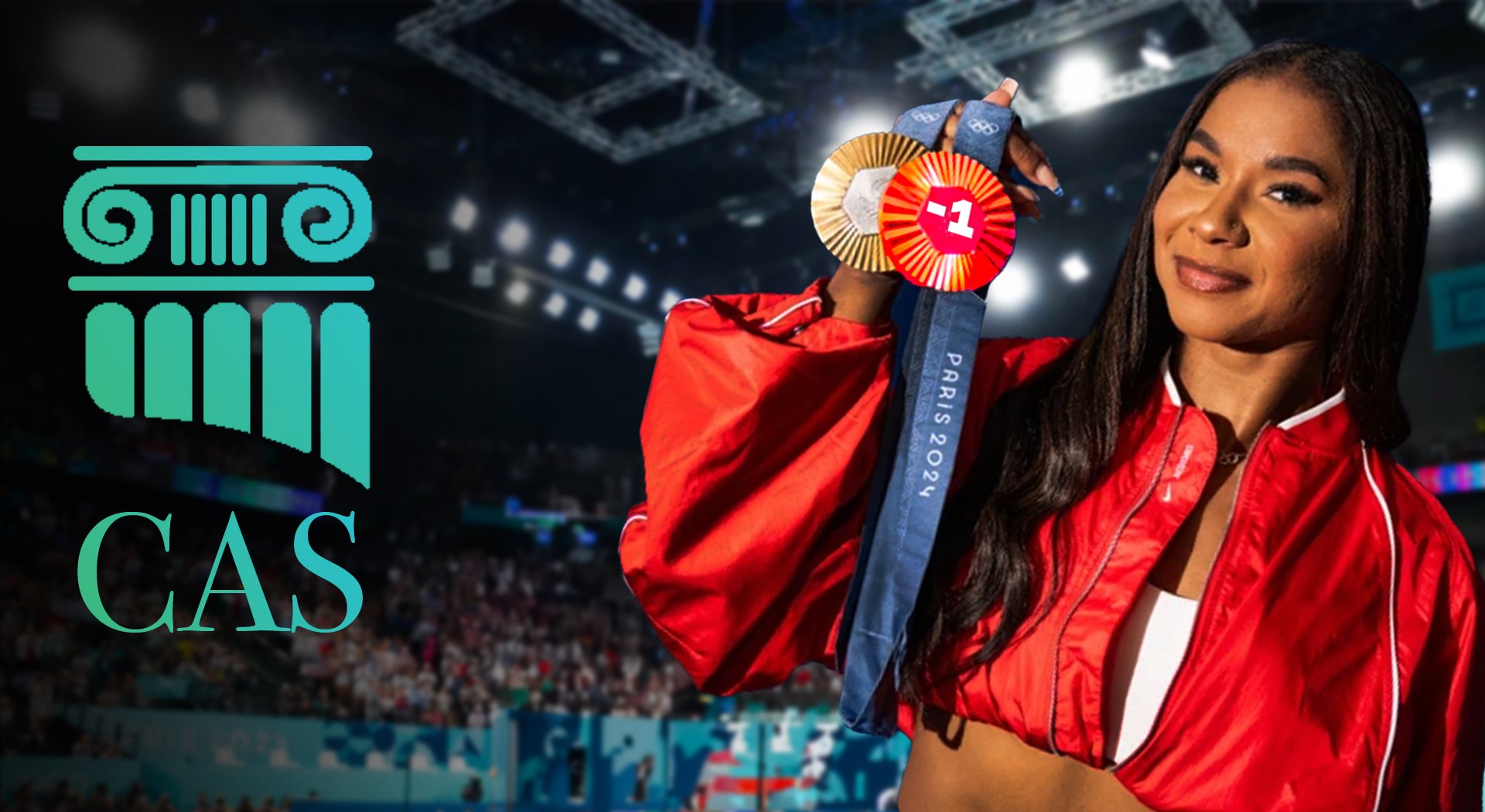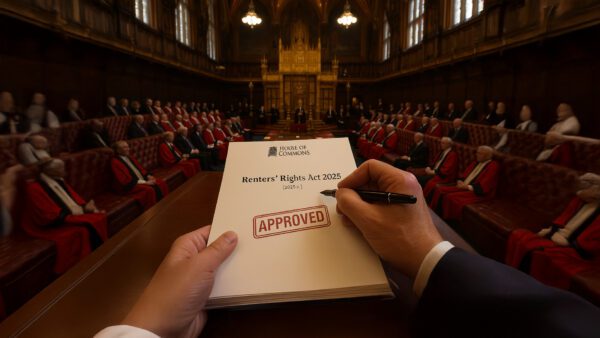On Saturday, American gymnast Jordan Chiles was stripped of her women’s floor bronze medal following a ruling by the Court of Arbitration for Sport (CAS) Ad Hoc Division. The fact that this decision was based on a technicality proved particularly contentious; it is unusual for Olympians to get stripped of their medals for reasons unconnected to doping or cheating. What was initially celebrated as the first all-black podium in Olympic gymnastics has become overshadowed by the controversy, with Chiles facing a slew of online abuse in yet another reminder of the challenges that black athletes continue to face.
The CAS ‘Ad Hoc Division’ is an interesting part of the international sports legal framework; well-known to sports legal professionals but less familiar to the general public. This specialised branch of CAS operates during major sporting events, delivering rapid rulings on urgent disputes to ensure that competitions proceed smoothly. In this article, I’ll explore how the Ad Hoc Division functions, its impact on events like the recent controversy involving gymnast Jordan Chiles, and the challenges of appealing its decisions.
Background – Women’s Floor Final
On 5 August at the women’s floor final, Romania’s Sabrina Maneca-Voinea was given a score of 13.700 following her routine. Contributing to this score was a penalty of 0.1 points for stepping out of bounds; this later proved controversial as video footage appeared to show her narrowly staying within bounds at the relevant moment. Following that, Ana Bărbosu, also of Romania, scored 13.700, beat Maneca-Voinea by a tiebreaker and secured herself third place. Jordan Chiles initially scored 13.666, but a successful appeal to the judges to raise her difficulty score increased her point total to 13.766 enabling her to come third and win bronze at the award ceremony.
Subsequently, the Romanian Gymnastics Federation and the two Romanian athletes involved filed an application to the CAS Ad Hoc division disputing the day’s results, claiming that USA Gymnastics had filed their successful inquiry to increase Jordan Chiles’ score four seconds beyond the one-minute deadline to do so. On this basis, they argued that Jordan Chiles’ score should be readjusted to 13.666. CAS accepted this argument on 10 August and, as a result, Chiles’ score was adjusted down to 13.666 with Romania’s Ana Bărbosu then taking third place.
What Is The Court Of Arbitration For Sport?
Within sport, arbitration plays a significant role in the resolution of disputes. In layman’s terms, arbitration could be thought of as a “private court”. All members of a sports governing body (e.g. FIFA, the ITF, the ICC) collectively agree to abide by a set of rules and principles governing interaction between different parties. Within this broader agreement, the parties almost always agree to have disputes determined by way of arbitration. In these circumstances, arbitration is often preferred as a more discreet option to resolve disputes, but it also ensures that there is consistency of approach in resolving disputes in any one sport, or that occur across different jurisdictions. Within sports arbitration, CAS is the highest ruling tribunal and its role can be thought of as akin to a “supreme court” of sport, being recognised by all Olympic sports federations as well as the International Olympic Committee. Unlike the ‘supreme court’ there is an option to appeal CAS decisions to the Swiss Federal Supreme Court (often referred to as the Swiss Federal Tribunal or SFT) for a final determination.
What Is The Ad Hoc Division Of CAS?
Since 1996, CAS has maintained “Ad Hoc” panels of arbitrators to hastily resolve any disputes emerging at the Olympic Games (the Ad Hoc Division also convenes at other major sporting events). Recognising the need for efficiency in such cases, they aim to make decisions within 24 hours. Despite being physically based in host cities, these ad hoc bodies maintain their legal seat in Lausanne and remain bound to the same Swiss procedural law that governs CAS arbitrations.
It is notoriously difficult to bring a successful challenge to a field of play decision. Nevertheless, the outcome of a CAS Ad Hoc tribunal can have implications on the results of an event, as with the case of Jordan Chiles, Ana Maria Bărbosu and Sabrina Maneca-Voinea. While that CAS decision did not impose a performance judgment on any of the athletes involved, its ruling upon the legitimacy of one of the inquiries was consequential enough to provoke a medal revocation.
Appealing a CAS Ad Hoc Division decision?
On 12 August USA Gymnastics released a statement that they had submitted new “time-stamped, video evidence” showing an inquiry to the judge made within the 1-minute window i.e. within the permitted time. They argued that this evidence was not available before the tribunal decision and therefore could not have been considered. There is no procedural mechanism for the CAS to ‘reconsider’ an award in this way and CAS has confirmed that they are not reopening the case. USA Gymnastics is now faced with one option – an appeal to the SFT.
With its legal ‘seat’ in Switzerland, the appeal mechanism for a decision of the CAS (including the Ad Hoc Division) is to the SFT. Appeals of this nature are particularly difficult, with the Swiss Arbitration Association reporting that less than 10% of challenges to arbitral outcomes are successful. Throughout the entirety of CAS’s existence, only a handful of such appeals have succeeded, most due to procedural technicalities.
The grounds for appeal (which can only confirm or annul the award) are set out in the Swiss Federal Act on Private International Law (PILA) and comprise: (i) improper constitution of the arbitral tribunal; (ii) the arbitral tribunal improperly accepted or rejected jurisdiction; (iii) the arbitral tribunal ruled on matters beyond the claims submitted to it or failed to address one or more of those claims; (iv) the fundamental procedural rights of the parties were violated; or (v) the award is not compatible with public policy.
The SFT bases its decisions on the facts already established by the arbitral tribunal and generally does not correct or add to these findings, even if they appear inaccurate. This creates an additional challenge for USA Gymnastics. The SFT may exceptionally review factual findings in very rare circumstances:
- if new facts or evidence emerge from the decision itself; or
- if the facts were established in violation of fundamental procedural rules or procedural public policy, or if they result from an oversight that constitutes a formal denial of justice.
If they choose to appeal to the SFT, USA Gymnastics may argue that the speed at which an irrevocable CAS decision was made, which limited the availability of evidence, was in violation of their right to fair process under Swiss law. Nevertheless, they will be challenged by the fact that an explicit founding purpose of CAS ad hoc tribunals was to provide 24-hour resolutions to disputes at the Olympics and that in principle every National Olympic Committee has freely consented to recognise its authority.
Conclusion
In summary, the CAS ‘Ad Hoc’ division plays a crucial role in maintaining fairness during major sporting events by resolving disputes swiftly and efficiently. While its decisions, such as the recent ruling on Jordan Chiles’ medal, can be contentious, they are designed to ensure that competitions proceed without unnecessary delays. Taking decisions in such a short time frame, will always lead to questions about the fairness of the process, especially given the need for legal counsel to prepare evidence and submissions on the fly.
The avenue for appealing these decisions is narrow, underscoring the importance of the division’s role in delivering timely justice in the high-pressure environment of international sports.
If you require any advice on sporting regulation or disputes, please get in touch with Simon Grossobel, Litigation Partner and Head of the Quastels Sports Group.









